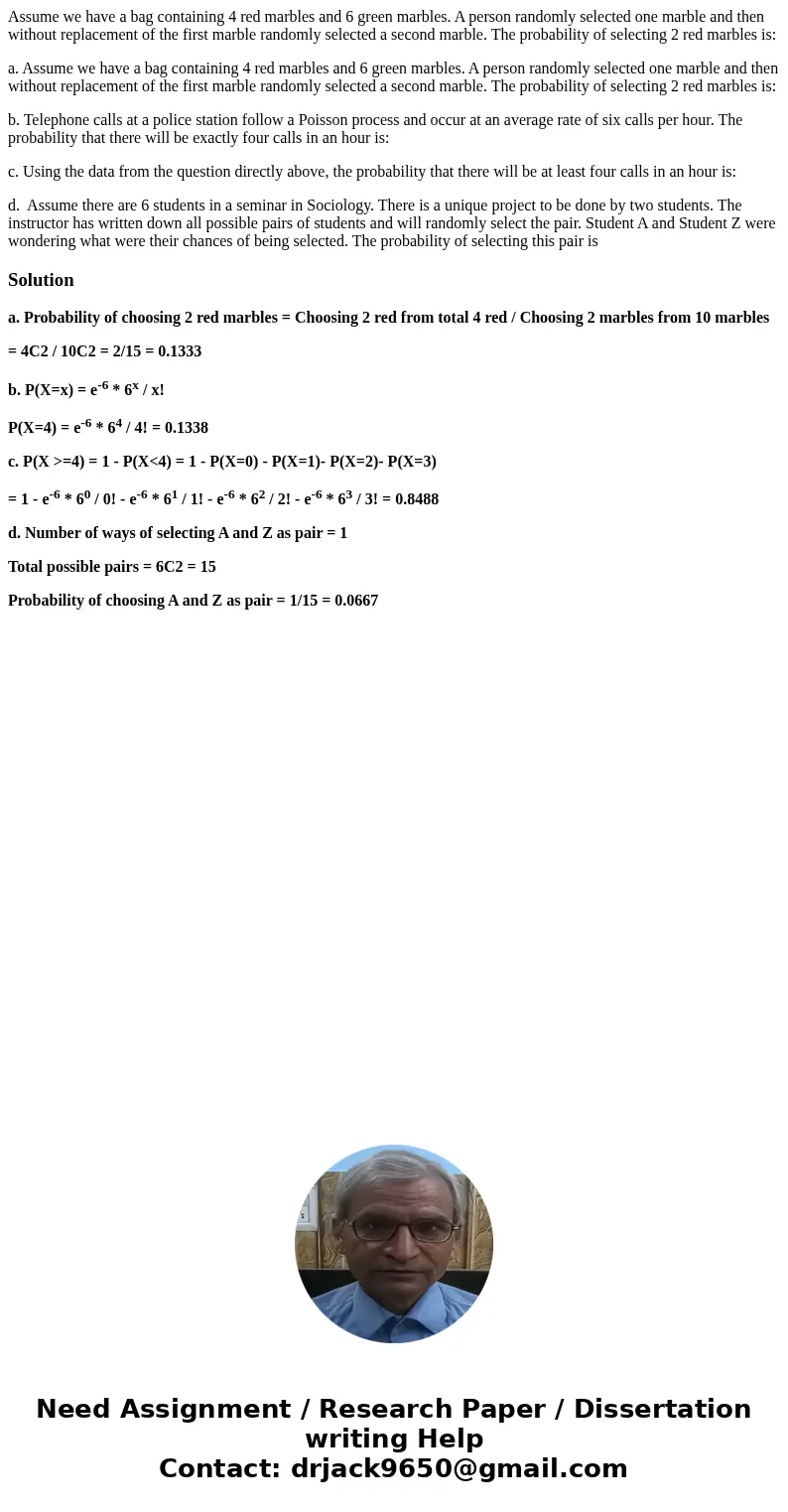Assume we have a bag containing 4 red marbles and 6 green ma
Assume we have a bag containing 4 red marbles and 6 green marbles. A person randomly selected one marble and then without replacement of the first marble randomly selected a second marble. The probability of selecting 2 red marbles is:
a. Assume we have a bag containing 4 red marbles and 6 green marbles. A person randomly selected one marble and then without replacement of the first marble randomly selected a second marble. The probability of selecting 2 red marbles is:
b. Telephone calls at a police station follow a Poisson process and occur at an average rate of six calls per hour. The probability that there will be exactly four calls in an hour is:
c. Using the data from the question directly above, the probability that there will be at least four calls in an hour is:
d. Assume there are 6 students in a seminar in Sociology. There is a unique project to be done by two students. The instructor has written down all possible pairs of students and will randomly select the pair. Student A and Student Z were wondering what were their chances of being selected. The probability of selecting this pair is
Solution
a. Probability of choosing 2 red marbles = Choosing 2 red from total 4 red / Choosing 2 marbles from 10 marbles
= 4C2 / 10C2 = 2/15 = 0.1333
b. P(X=x) = e-6 * 6x / x!
P(X=4) = e-6 * 64 / 4! = 0.1338
c. P(X >=4) = 1 - P(X<4) = 1 - P(X=0) - P(X=1)- P(X=2)- P(X=3)
= 1 - e-6 * 60 / 0! - e-6 * 61 / 1! - e-6 * 62 / 2! - e-6 * 63 / 3! = 0.8488
d. Number of ways of selecting A and Z as pair = 1
Total possible pairs = 6C2 = 15
Probability of choosing A and Z as pair = 1/15 = 0.0667

 Homework Sourse
Homework Sourse